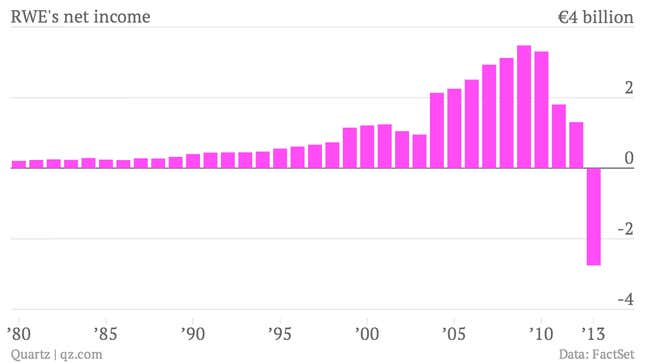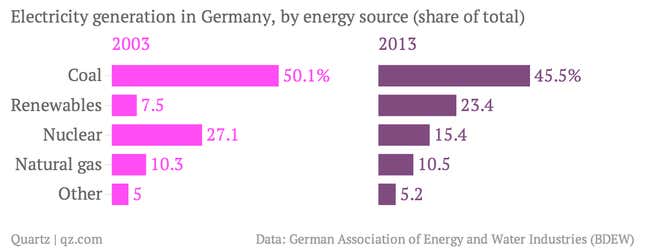
The numbers: RWE, Germany’s largest power generator, reported a €2.8 billion ($3.9 billion) net loss in 2013, the company’s first loss in its history, which stretches back more than 60 years to the founding of the Federal Republic of Germany in 1949.
The takeaway: At the operating level, the company remained profitable, albeit less than the year before—its operating profit in 2013 fell by 8% versus the previous year. But what ended RWE’s remarkably long run of net profits was a €4.8 billion write-down of the value of its fossil fuel-fired power plants in Germany and the Netherlands. Lower demand thanks to weak economic growth and greater energy efficiency, alongside pressure on prices from a huge jump in renewable capacity, is punishing conventional utilities across Europe. Last week French utility GDF Suez took a €15 billion hit on the value of its carbon-spewing power plants. RWE is idling around 10% of its coal and gas generating capacity this year to save costs.
What’s interesting: RWE’s mothballed plants were “forced out of the market by subsidized solar power,” according to CEO Peter Terium, who believes utilities like his are facing “the worst structural crisis in the history of energy supply.” Following the Fukushima nuclear disaster in Japan, German officials passed sweeping laws to phase-out nuclear power and promote renewable sources of energy instead. The move has generated plenty of controversy, but nobody can deny that the effect on Germany’s energy mix has been profound (see chart below). With only a small renewable fleet, Terium admitted today that, “we were late entering into the renewables market—possibly too late.”
